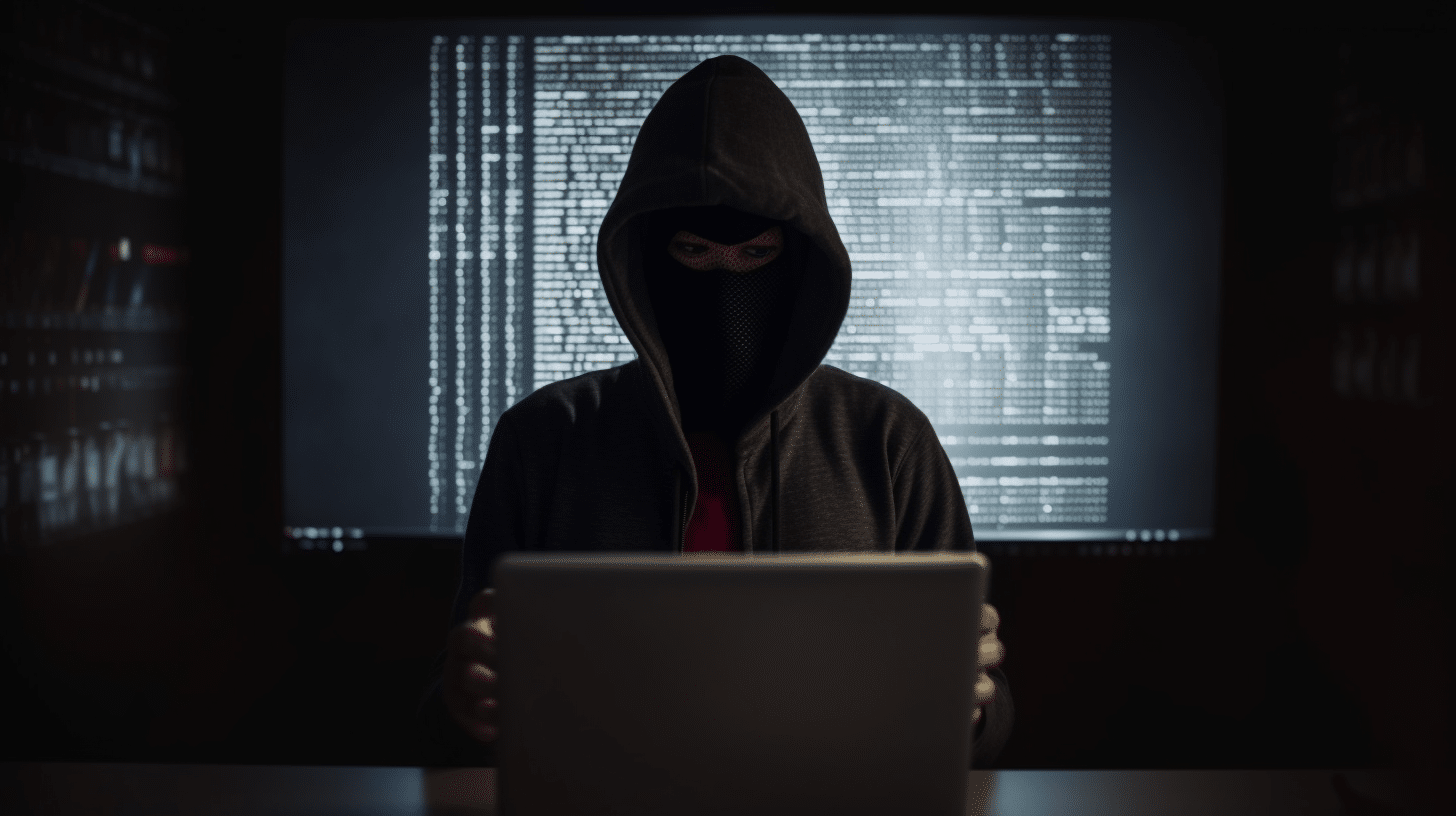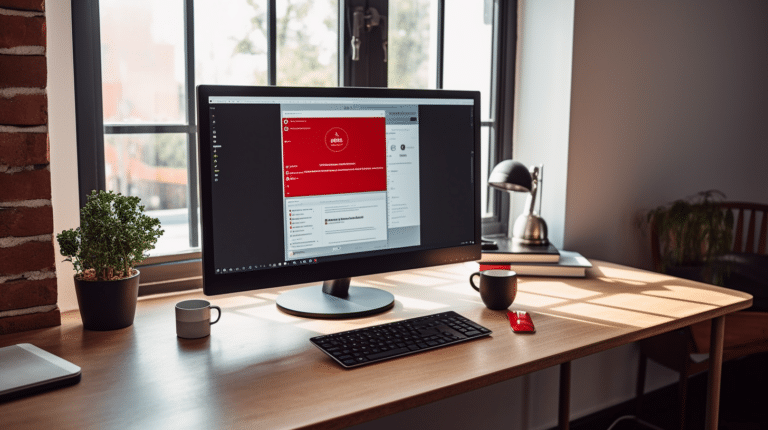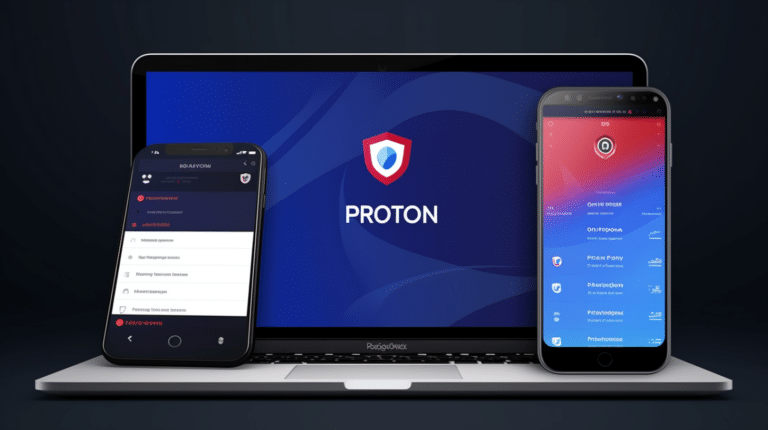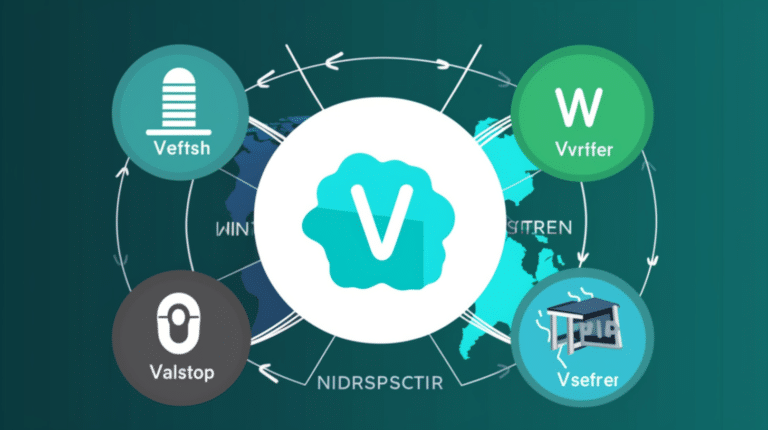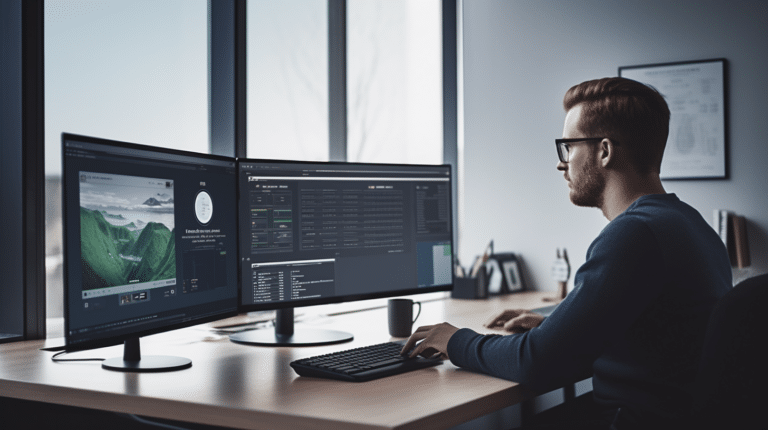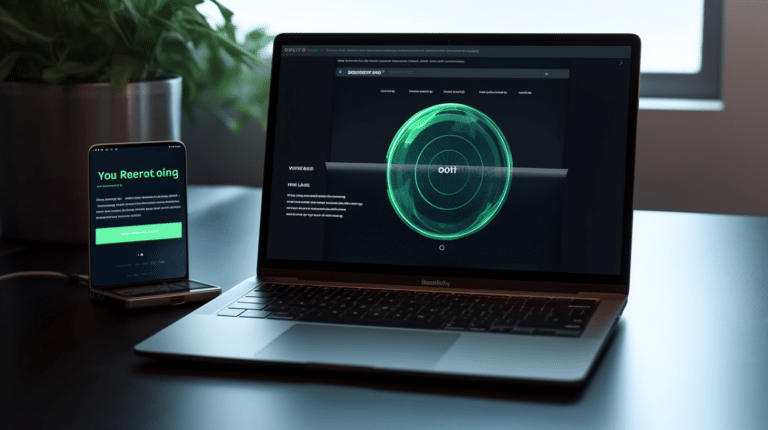Virtual private networks (VPNs) have become increasingly popular as individuals seek to protect their online privacy and security. VPNs work by creating encrypted tunnels that mask a user’s real IP address, making it difficult for third parties to track their browsing activities. While VPNs are widely recognized for their ability to conceal users’ online identities, it’s crucial to understand their limitations as well as the factors that can still lead to tracking.
When using a VPN, your network traffic appears to come from the VPN server’s IP address rather than your own. This process makes it harder for websites and advertisers to collect data about your browsing habits and location. However, solely relying on a VPN doesn’t guarantee complete privacy, as other factors like browser fingerprinting and various tracking techniques can still be used to identify individuals. Understanding the role of a VPN and its limitations in preventing tracking is essential for maintaining online privacy.
Key Takeaways
- VPNs provide a layer of privacy, but they aren’t foolproof in preventing online tracking
- Privacy practices among VPN providers may vary, affecting the level of protection offered
- Combining a VPN with other privacy measures can enhance security and prevent tracking more effectively.
The Role of a VPN
A VPN, or Virtual Private Network, is a service that allows you to create an encrypted connection between your device and a VPN server. This secure connection helps protect your online privacy and prevent others from tracking your online activity.
When you connect to a VPN, your device’s IP address is replaced with the VPN server’s IP address. This can make it more difficult for third parties to track you based on your IP address. In addition, the data transmitted between your device and the VPN server is encrypted, making it more challenging for hackers or eavesdroppers to access your data.
However, it is essential to understand that not all VPN services are created equal. Some VPN providers may not have strong encryption standards or may log your activity, potentially compromising your privacy. Therefore, it is crucial to choose a reliable and reputable VPN service that upholds strict no-logs policies and consistently works to improve their encryption methods.
Another critical aspect of a VPN is its ability to create a private network between your device and the VPN server. This virtual network allows you to access the internet securely, even when using public Wi-Fi or other unsecured connections. By routing your internet traffic through the VPN server, you can prevent potential attackers from intercepting your data.
In conclusion, a VPN plays a significant role in maintaining your online privacy and security by masking your IP address, encrypting your data, and creating a private network. However, it is essential to choose a trustworthy VPN provider to ensure maximum protection against tracking and other online threats.
How VPNs Hinder Tracking
VPNs provide various features to help hinder online tracking and protect your privacy. In this section, we will discuss some of these features, including IP address concealment, cookie management, the kill switch, preventing DNS leaks, and the use of obfuscated servers.
IP Address Concealment
One of the primary ways VPNs hinder tracking is by concealing your IP address. When you connect to a VPN service, your internet traffic is routed through a secure server, which replaces your real IP address with that of the VPN server. This makes it much more difficult for websites and trackers to associate your online activities with your identity, providing you a layer of anonymity while browsing the web.
Cookies and VPN
While VPNs can’t directly manage cookies, they do help protect against cookie-based tracking by masking your IP address. Many online trackers rely on cookies to store your browsing history and preferences. By changing your IP address, VPNs make it harder for trackers to link cookies with a specific user, further hindering their ability to monitor your online activities.
The Kill Switch Feature
Some VPNs offer a kill switch feature as an added layer of protection. If the VPN connection is disrupted for any reason, the kill switch steps in and immediately cuts your internet connection. This ensures that your real IP address and online activities aren’t accidentally exposed, even for a brief period, preventing any tracking attempts during the outage.
Preventing DNS Leaks
Besides IP address tracking, another potential privacy breach occurs through DNS leaks. When using a VPN, your DNS queries should be sent through the encrypted VPN tunnel, but sometimes they can be unintentionally leaked and sent through your default DNS resolver, revealing your browsing history. VPNs with built-in DNS leak protection ensure that your DNS queries are always sent through the VPN server, preventing any potential leaks and maintaining your privacy.
Obfuscated Servers
Lastly, some VPNs provide what are known as obfuscated servers. These servers are specifically designed to circumvent VPN blocking or censorship in regions with strict internet restrictions. By using obfuscated servers, VPNs can help users avoid detection by their ISP, network administrators, or government entities, further enhancing privacy and protection against tracking.
Privacy Practices Among VPN Providers
No-Logs Policy
A no-logs policy is a crucial feature to consider when choosing a VPN provider. This policy ensures that the VPN service does not collect, store, or share any user’s browsing data. It is essential because a VPN service that keeps logs of user activities can be compelled by authorities or hackers to reveal the information, negating the privacy benefits of using a VPN. However, not all VPN providers are truthful about their no-logs policies, so it’s important to choose a reputable provider like How-To Geek recommends.
Free Versus Paid VPN Services
When it comes to privacy, there is a clear distinction between free and paid VPN services. Free VPNs may be tempting to use due to their cost, but they often come with significant privacy risks. Some free providers track and sell user data to third parties, negating the purpose of using a VPN in the first place. On the other hand, paid VPN services generally have more robust privacy practices and are less likely to compromise user data.
In conclusion, it is essential to carefully consider the privacy practices of different VPN providers when choosing one. Pay close attention to their no-logs policy and whether they offer free or paid services to make an informed decision that balances your privacy needs, security, and budget.
Popular VPN Services and Tracking
ExpressVPN
ExpressVPN is a well-known VPN service that emphasizes user privacy and security. It operates under a strict no-logging policy, ensuring that no user browsing data is collected or stored by the service1. This, combined with advanced encryption methods, helps to protect users from being tracked online. One noteworthy aspect of ExpressVPN is its location in the British Virgin Islands, which is outside the jurisdiction of the 5/9/14 Eyes Alliance, further enhancing its commitment to privacy.
Surfshark
Surfshark is another popular VPN service recognized for its dedication to user privacy. Similar to ExpressVPN, it upholds a no-logging policy, meaning that your browsing activities are not recorded or stored by the company2. Surfshark’s use of secure encryption technologies ensures that your online traffic remains private and resistant to tracking attempts. In addition, Surfshark’s MultiHop feature allows users to connect to multiple servers simultaneously, making it even more difficult for your activities to be tracked by potential eavesdroppers.
NordVPN
NordVPN is a widely-used and reputable VPN service that is committed to providing secure and private browsing experiences for its users. The company has a strict no-logging policy, so your browsing data is not collected or stored3. NordVPN also employs advanced encryption methods to keep your online activities private and untraceable. They offer unique features such as Double VPN, which routes your traffic through two servers for extra privacy, and CyberSec, which helps block ads and malware.
Overall, ExpressVPN, Surfshark, and NordVPN are all trustworthy VPNs that prioritize user privacy and security. By implementing strict no-logging policies and utilizing advanced encryption technologies, these services help to prevent tracking and maintain a secure online experience for their users.
VPN and Browser Fingerprinting
VPNs are often praised for their ability to increase online privacy by encrypting data and masking a user’s true IP address. However, this does not mean that they fully prevent tracking. One method that can still be employed to track users is through browser fingerprinting.
Browser fingerprinting is a technique where unique attributes of a user’s device, such as browser settings and system configurations, are collected and analyzed to create a profile. This process can effectively identify individual users even if they are using a VPN. The main reason behind this is that a VPN does not prevent browser fingerprinting, as it only focuses on encrypting data and hiding the IP address.
Popular browsers like Firefox and Chrome are susceptible to fingerprinting, but they have made efforts to limit it. For example, Firefox has implemented built-in features to combat fingerprinting, such as blocking third-party cookies and implementing anti-tracking protection. Chrome, on the other hand, has been experimenting with ways to decrease the accuracy of fingerprinting techniques.
An effective method to further reduce the risk of browser fingerprinting is by using browser extensions. These extensions can help protect against specific fingerprinting techniques, such as canvas, WebGL, and hardware fingerprinting. One such powerful extension is Trace, available for Chrome. Additionally, some extensions can block WebRTC, a functionality in web browsers that may leak your real IP address even when using a VPN.
In summary, a VPN alone may not provide complete protection against tracking, as browser fingerprinting techniques can still identify users. To increase online privacy, consider using browsers with built-in privacy features and utilizing browser extensions that can further limit fingerprinting and other tracking methods.
How Others Track You Online
Internet Service Provider
Your Internet Service Provider (ISP) can monitor and track your online activities, especially if you are not using a VPN connection. ISPs have the ability to record your browsing history, the websites you visit, and any streaming or downloading activities you perform. They can also potentially throttle your internet speed or block certain websites based on your usage patterns.
Websites and Data Collection
Websites you visit usually have tracking mechanisms in place to collect data about your online behavior. This data may include your IP address, the pages you visit, time spent on the website, and your browser type. Some websites use cookies to personalize your experience and target you with relevant advertisements. Others, like Google, track your search queries to deliver more accurate search results and refine their algorithms.
Social Media Platforms
Social media platforms, such as Facebook and Twitter, are known for collecting vast amounts of user information to profile their user base. They store data about your likes, shares, comments, posts, and even the people you interact with the most. This data is used for targeted advertising, content recommendations, and to analyze user patterns to improve their platforms. Social media tracking can also enable them to connect users with their wider online activities, creating more comprehensive user profiles.
Government and Authorities
In some situations, government authorities may request access to user data from ISPs, websites, or social media platforms, particularly in cases related to national security or criminal investigations. Governments can also track individuals using advanced surveillance technologies and collaborate with other governments for sharing data. It’s essential to be aware of the privacy laws in your country and how your data may be used or shared with third parties.
Understanding the Limits of VPNs
A Virtual Private Network (VPN) can be a great tool for enhancing your online privacy and security. However, it’s important to understand that using a VPN doesn’t guarantee complete protection. Let’s examine some of the limits of using VPNs, especially when it comes to preventing tracking.
Firstly, a VPN’s ability to safeguard your online privacy relies on the trustworthiness of the VPN provider. While VPNs are designed to encrypt your traffic and anonymize your browsing activity, a VPN provider may still track your data. Choosing a reputable provider with a clear privacy policy is crucial in minimizing the risk of having your data collected or monitored.
Secondly, VPNs can still be susceptible to leaks. A common issue is the DNS leak, where DNS requests may be sent outside of the encrypted VPN tunnel and visible to your ISP, allowing them to track your online activity. In addition, WebRTC leaks can expose your real IP address and compromise your anonymity. To minimize the risk of leaks, it’s important to choose a VPN that offers DNS and WebRTC leak protection features.
In terms of online privacy, VPNs may not be able to protect you from certain threats like tracking cookies and browser fingerprinting techniques. A VPN can encrypt your data but can’t prevent websites from using cookies and other methods to track your behavior. To enhance privacy in this area, consider using privacy-focused browsers and browser extensions that block tracking scripts.
Furthermore, the effectiveness of a VPN also depends on the VPN protocols it utilizes. Stronger protocols like OpenVPN and WireGuard provide better security and privacy compared to outdated ones like PPTP. It’s crucial to ensure your VPN service supports modern and robust protocols to ensure optimal protection.
In summary, while VPNs can significantly improve your online privacy and security, they have certain limitations. Being aware of these limits and taking additional steps to safeguard your online presence, such as choosing a trustworthy provider and using privacy-enhancing tools, will help you make the most of your VPN experience.
Final Thoughts on VPNs and Online Tracking
VPNs offer a certain level of protection against online tracking by hiding your IP address and encrypting your internet traffic. This can make it more difficult for ISPs, hackers, and governments to monitor your browsing activities. However, it is important to understand that using a VPN does not guarantee complete anonymity or privacy online.
One aspect to consider is that not every VPN actually cares about your privacy, as some may log your browsing data or even sell it to third parties. Therefore, it is essential to choose a reputable VPN provider with a strict no-logging policy to ensure your data remains as secure as possible.
Even with a reliable VPN, certain tracking methods can still work. For example, VPNs do not block browser cookies, which can be used by advertisers to track your activities across multiple websites. Additionally, some online tracking techniques, such as browser fingerprinting, are not affected by the use of a VPN.
Furthermore, VPNs cannot protect you from all online dangers and should not be considered a magic solution for all privacy concerns. For a more comprehensive approach to online privacy, consider using a combination of tools such as privacy-focused browsers, browser extensions that block trackers, and encrypted messaging apps.
In conclusion, while VPNs can be an effective tool against certain forms of online tracking, they are not a one-size-fits-all remedy for privacy concerns. It is important to be informed about the limitations of VPNs and combine them with other privacy-enhancing tools to achieve the best level of protection.
Frequently Asked Questions
Does a VPN hide browsing history from ISPs?
Yes, a VPN can help hide your browsing history from your Internet Service Provider (ISP). When you connect to a VPN, your data is encrypted and routed through the VPN server, masking your true IP address. This makes it harder for your ISP to see the websites you visit. However, it’s important to choose a reliable VPN provider that doesn’t keep logs of your browsing activity.
How does a VPN protect against hackers?
VPNs provide an extra layer of security by encrypting your data and hiding your IP address as you browse the internet. This makes it more difficult for hackers to intercept your data, monitor your online activities, or launch targeted attacks. Although a VPN can significantly improve your online security, it’s essential to remember that it’s not an all-in-one solution – you should also use strong passwords, keep your software up-to-date, and practice good cybersecurity habits.
Can VPN usage be tracked by employers?
In some cases, employers may be able to detect if you’re using a VPN on their network. They might perform network scans, monitor traffic, or identify high VPN usage through their firewall. However, the actual content of your browsing activity will be encrypted, making it more difficult for them to monitor the websites you visit or the data you send and receive.
Can browsing history be tracked through a VPN?
Although a VPN encrypts and hides your browsing history, it’s still important to choose a trustworthy VPN provider that doesn’t store logs of your internet activity. Some VPNs may claim to keep no logs, but it’s essential to do your research and read the provider’s privacy policies to verify this. In general, using a VPN adds an extra layer of privacy protection to your browsing, but this largely depends on the quality of your VPN service.
How to trace a VPN IP address?
Tracing a VPN IP address can be challenging, as the purpose of a VPN is to mask your true IP address and location. Some VPN providers use shared IP addresses, meaning multiple users are assigned the same IP address, which makes it even more difficult to trace users’ activities back to a specific individual. However, if a VPN provider keeps logs, law enforcement agencies may potentially request this information to investigate illegal activities.
Does a VPN prevent location tracking?
A VPN can help prevent location tracking by hiding your real IP address and routing your data through a VPN server, often in a different country. This makes it difficult for websites and apps to determine your actual location and potentially restrict or serve you targeted content based on your whereabouts. However, some advanced tracking techniques may still attempt to determine your location through other means, such as GPS data or Wi-Fi signals on your device, so it’s crucial to take other measures to protect your privacy as well.
